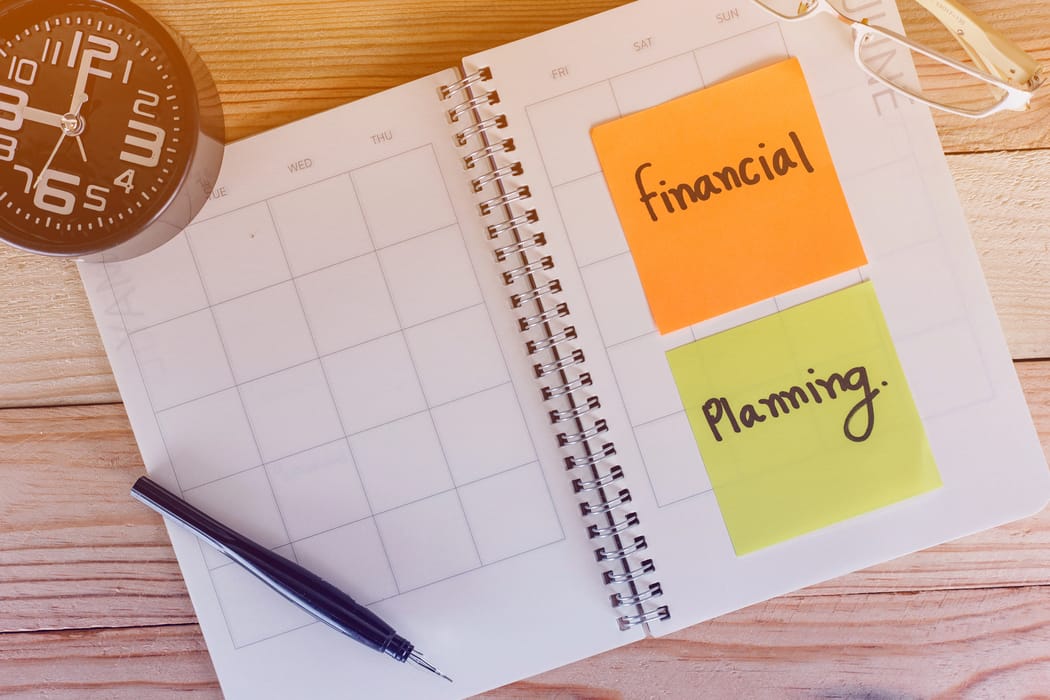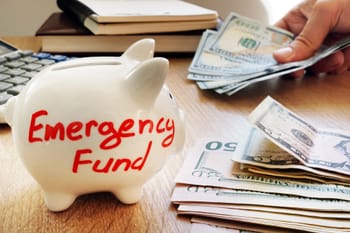Unforeseen expenses can be tiny as an extra bottle of water on a hot day. But many of them can significantly disrupt your budget. This article will help you prepare for expenses led by unexpected events and learn:
- How to plan for unexpected expenses, such as car repairs or medical emergencies,
- Why you need insurance to prepare for unexpected events and what kind of insurance plan you should choose,
- How to allocate your funds to prepare a financial safety cushion, and
- Where to find spare money to set up a fund for unforeseen expenses.
So read the article to be more prepared for the unexpected events and emergency costs.
What Are Unexpected Events
An unexpected event is a situation or occurrence that is sudden, unplanned, and often costly. These typically create unexpected expenses [1], which refer to any expenses that are not part of your regular budget or financial plan.
Unexpected events can happen to anyone, at any time, and can have a significant impact on one's financial well-being. The sudden loss of a job, an unexpected medical expense, or a natural disaster can cause significant financial strain and stress.
However, by being proactive and planning ahead [2], you can lessen the effects of these unanticipated expenses and safeguard yourself and your family.
What Costs Can Disrupt My Budget
You might be wondering, what are unexpected expenses that could disrupt my budget? Well, the truth is there are a large variety of unexpected events that could occur, such as job loss, illness, natural disasters, car repairs, home repairs, and emergency travel.
And it’s important to be aware of them all so you can be prepared.
We’ll explore some of the most common examples of unexpected expenses below.
Medical Emergencies
Medical emergencies refer to any sudden or unexpected health-related incidents that require immediate medical attention. These can include serious illnesses, injuries, or accidents that require emergency medical care.
Medical emergencies can happen to anyone, at any time, and can have a significant impact on one's financial well-being.
Some examples of medical emergencies include:
- Accidents,
- Sudden illnesses, or
- Chronic condition.
Medical emergencies can be difficult to predict, and the costs associated with them can be high.
Unplanned home repairs may require significant funds
Home Repairs
Home repairs refer to any repairs or maintenance that need to be done to a home to keep it in good condition. These repairs can range from small, routine maintenance tasks to major repairs that can be costly and time-consuming.
Unexpected home repairs can cause significant financial strain and stress, especially if they are not planned for in advance.
Some examples of unexpected home repairs include:
- Roof leaks,
- Plumbing issues, or
- Electrical problems.
To be financially ready for unplanned home repairs, it's important to establish a home maintenance schedule to monitor regular upkeep and spot any possible issues in advance.
Auto Repairs
Auto repairs encompass any necessary repairs or maintenance to maintain a car's proper functioning. These repairs can include everything from small, regular maintenance tasks to significant repairs that can be both costly and time-consuming.
Without proper planning, unexpected auto repairs can lead to significant financial burdens and stress. Some examples of unexpected auto repairs include engine problems, transmission issues, brake problems, and so on.
To financially prepare for unexpected auto repairs, it's essential to have a vehicle maintenance schedule in place to keep track of regular maintenance tasks and identify potential issues early on.
Pet Care Emergencies
Pets can be a wonderful addition to our lives, but they can also be costly. Unexpected veterinary bills can add up quickly, so it's important to be prepared. These can include serious illnesses, injuries, or accidents that require emergency medical care.
Pet emergencies can happen to any pet, at any time, and can have a significant impact on one's financial well-being. It can be challenging to anticipate pet emergencies and the expenses they may entail can be substantial.
Natural Disasters
Natural disasters such as hurricanes, tornadoes, earthquakes, and floods can cause significant damage to homes and businesses. They can also cause power outages, and communication breakdowns and make transportation impossible, making it difficult to access essential goods and services or to continue working.
Natural disasters can cause a wide range of unexpected expenses, some examples of natural disaster expenses include:
- Temporary housing,
- Replacing lost or damaged belongings,
- Evacuation and transportation expenses, etc.
It's important to remember that natural disasters can happen at any time and it’s important to be prepared for them.
Tips To Plan For Unexpected Costs
By following these tips, you can be better prepared for unexpected events and ensure that you can maintain control over your finances. By taking action and planning for the unexpected you can be sure to be ready for whatever comes your way.
Remember that it's always better to be proactive. You should do research in advance to know what helps you prepare for unexpected expenses as well as what steps you need to take, rather than waiting for an unexpected event to occur.
Establish an Emergency Fund
One of the most important steps you can take to financially prepare for unexpected events is to create an emergency fund.
This fund should be separate from your regular savings account and should be used solely for unexpected expenses. Aim to save at least three to six months' [3] worth of living expenses in this account.
Regular savings help your emergency fund grow
Here is a detailed step-by-step guide on how to establish an emergency fund:
- Determine your emergency fund goal: Start by calculating your monthly living expenses, including rent/mortgage, utilities, food, transportation, and any other recurring expenses. This will give you an idea of the amount of money you need to cover your basic expenses in case of an emergency. Multiply that number by three to six to determine how much you should aim to save in your emergency fund.
- Open a separate savings account: Open a new savings account specifically for your emergency fund. This will help you keep your emergency savings separate from your regular savings and make it less tempting to dip into it for non-emergency expenses. Look for an account with a high interest rate, as this will help your savings grow faster.
- Set up automatic transfers: Set up automatic transfers from your checking account to your emergency fund savings account on a regular basis. This will help you consistently save towards your goal without having to think about it. You can choose to transfer a fixed amount of money each month or a percentage of your income.
- Avoid temptation: Keep your emergency fund in an account that is not easily accessible, like a savings account with a bank or a credit union. Avoid keeping it in a checking account where you may be tempted to use it for non-emergency expenses.
- Keep track of your progress: Keep track of your savings progress and monitor your account balance regularly. This will help you stay motivated and on track to reach your goal.
By following these steps, you can create an emergency fund that will provide you with peace of mind and help you weather unexpected financial storms.
Buy Health Insurance and Life Insurance
Another important step is to make sure you have adequate insurance coverage to protect yourself and your family. This includes health insurance, life insurance, and property insurance.
These are the three essential insurance types you should have to begin with as they can help give you financial coverage for any unexpected events that arise:
- Health insurance helps cover the cost of medical care and hospital stays.
- Life insurance provides financial protection for your family in case something happens to you.
- Property insurance protects your home and other assets from damage caused by natural disasters and other incidents.
Review your insurance coverage regularly to ensure that it is up-to-date and provides adequate protection. It is also important to stay informed about the changes in your policy and ensure that you are getting the coverage you need at a price you can afford.
Do not borrow or use credit card excessively
While borrowing or using credit cards can be a convenient way to cover unexpected expenses, it's important to use them responsibly.
Excessive borrowing or using credit cards can lead to high levels of debt and negatively impact your credit score. Additionally, the high-interest rates associated with borrowing or credit card use can make it difficult to pay off the debt.
Have a reserve budget
A budget is an essential tool for managing your finances. It can help you identify where your money is going and where you can cut back if necessary.
A reserve budget is a set amount of money put aside for unexpected expenses or events. This money should be kept separate from your regular savings account [1] and should only be used for unexpected expenses.
Aim to save at least three to six months' worth of living expenses in this account. This way, if an unexpected event occurs, you will have funds readily available to cover expenses and maintain your standard of living.
Remember that it's always better to be proactive and take steps to prepare in advance rather than wait until an unexpected event occurs.
Invest to get spare cash for unforeseen expenses
Another important way to plan for unexpected costs is to invest your money. Investing in a diversified portfolio of stocks, bonds, and other assets can help your money grow over time, which can provide a cushion for unexpected expenses.
It's important to consult with a financial advisor to determine the right mix of investments for your individual situation and risk tolerance. As well, always remember to have a long-term perspective when it comes to investing and not to make impulsive decisions based on short-term market fluctuations.
Investing can help your create a finance safety cushion for unexpected expenses
Summary
In conclusion, financially preparing for unexpected events is crucial for maintaining stability and security in your life.
Unexpected events such as job loss, illness, and natural disasters can cause significant financial strain and stress, but by taking steps to prepare in advance, you can reduce the impact of these unforeseen expenses and protect yourself and your loved ones.
Frequently Asked Questions
What are unexpected events?
Unexpected events refer to any sudden, unplanned, and often costly situations or occurrences that are not part of your regular budget or financial plan. These can include job loss, illness, natural disasters, car repairs, home repairs, and emergency travel.
What are the most common unexpected expenses that disrupt household budgets?
The most common unexpected expenses include medical emergencies, sudden home repairs, urgent car breakdowns, job loss, pet care costs, and natural disasters. Each of these can create financial strain if you do not have an emergency fund or insurance in place. Being aware of these potential costs is the first step towards protecting your budget.
How much should I save in an emergency fund for unexpected events?
Financial experts typically recommend saving at least three to six months’ worth of essential living expenses in a dedicated emergency fund. This should cover housing, food, utilities, transport, and other necessary costs. Having this safety cushion ensures you can manage unexpected events such as illness, redundancy, or urgent repairs without going into debt.
How can I financially prepare for unexpected events?
There are several ways to financially prepare for unexpected events, including establishing an emergency fund, buying health insurance and life insurance, avoiding excessive borrowing or use of credit cards, and having a reserve budget.
What type of insurance offers the best protection against unexpected events?
Health insurance, life insurance, and property insurance provide the strongest financial protection against unexpected expenses. Health insurance covers medical emergencies, life insurance protects your family if something happens to you, and property insurance covers damage caused by natural disasters or accidents. Reviewing your policies regularly helps ensure your coverage is adequate and up to date.






